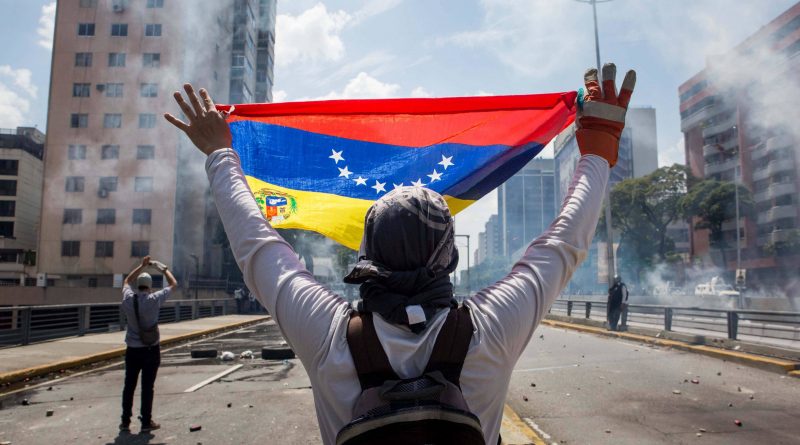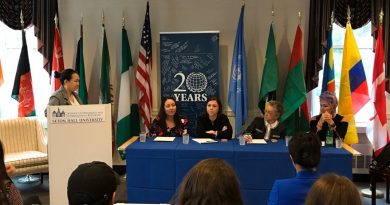Tensions Rise as Colombian Rebel Groups Amass Strength in Maduro’s Venezuela
Joshua Newman
Staff Writer
As the security situation in Venezuela continues to deteriorate, bordering nations in the region fear violence will spill across their borders. The nation most at risk is Colombia, reports the Washington Post.
Colombia already deals with preexisting security threats such as drug trafficking and an overwhelming refugee crisis, and these threats can grow to unmanageable size with a failing state across the border. One such threat, the Ejército de Liberación Nacional (ELN), is already taking advantage of the devolving state of affairs. The ELN is a Marxist terrorist group often considered as a smaller fraction of the Revolutionary Armed Forces of Colombia (FARC) by American media, according to the Washing Post. FARC fought a five-decade-long war with the Colombian government from 1964 to 2016, killing over 260,000, according to a Reuters report. Despite the two sides reaching a peace agreement in 2016, for many fighters, the war is not yet over. Armed groups like the ELN are now swelling in size, and as Venezuela’s security falters, both countries face an increased risk of militant violence.
Wall Street Journal reports that Venezuelan President Nicolas Maduro permits the ELN to control a portion of rural Venezuela along the Colombian border. This allows the ELN to run illegal mines and traffic drugs. Of the 2,400 ELN rebels, nearly half currently reside in Venezuela, including a number of top commanders. In exchange for noninterference, Venezuelan officials often use ELN troops to put down business rivals, a key asset in the never-ending struggle over the illicit substances trade. As a result of increasing influence over the region, the ELM quickly becoming a powerful criminal organization in Venezuela.
In addition to gaining territory, the ELN receives other major benefits from its relationship with the Maduro regime. Bloomberg Politics reports that the Venezuelan government trains rebels in the use of advanced weapons systems, including rockets. These rockets, the Russian manufactured IGLA surface-to-air missile, have the capability to bring down aircraft, increasing the lethality of the formerly small rebel group. Though Colombia is certain the rebel forces received formal training, they do not know whether the ELN acquired their own missile launchers.
The final advantage of the failing Venezuelan state offers to the rebel group is a chance to increase their recruitment numbers. In a nation where food is scarce and steady income even more so, groups like the ELN offer a relatively secure life. The ELN recruited an estimated 250 Venezuelan citizens this year, and that number is likely to grow, according to the Wall Street Journal.
Though the ELN is growing in size, they are only one threat to Colombian security and as the situation worsens, so do tensions between Colombia and Venezuela. According to Reuters, Venezuela continues to carry out military exercises on the Colombian border, a move that Colombia’s foreign minister called “a direct threat to regional stability.”
Caracas ordered the exercises after it told forces to be on alert for a possible Colombian attack. This new escalation comes as FARC announced plans for rearmament in a video, ignoring the 2016 peace deal. Colombian officials believe that FARC recorded the video in Venezuela, possibly making them the second Colombian rebel group to take advantage of the Venezuelan crisis.
Colombia responded in typical fashion, escalating its war of words with the Maduro regime. According to US News and World Report, Colombian President Ivan Duque responded to the Venezuelan threat in a local radio broadcast in Barranquilla, stating “Instead of spending that money on missiles, protect the Venezuelan people, give them food.”
Given that armed violence in fragile states has led to spill-over conflicts in the past, Columbia has a right to be nervous about these latest developments. The failing Venezuelan state and its willingness to support foreign rebel groups encourage civil conflict within its neighboring country, and if its involvement in those affairs is left unchecked, that encouragement can only lead to all-out war.



